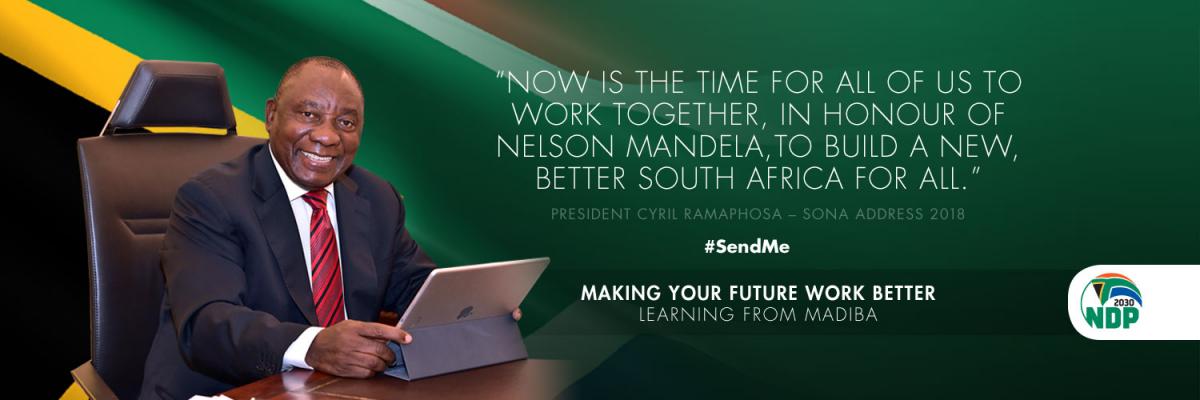The struggle for a living wage continues
The struggle for a living wage continues Joy
Certainly on top of the minds of many South Africans is the progress made regarding the National Minimum Wage Bill, an important development in our historical and necessary struggle for a living wage.
I am particularly excited about progress on this Bill because it signifies the strides that we have made and are making in our quest to tackle poverty, unemployment and inequality.
Our efforts respond to the constitutional injunction for the restoration of the dignity of our people. In this regard, we remain guided by the Freedom Charter which calls, amongst others, for “men and women of all races to receive equal pay for equal work; for a forty-hour working week, a National Minimum Wage, paid annual leave, and sick leave for all workers, and maternity leave on full pay for all working mothers.”
The Freedom Charter further calls for miners, domestic workers, farm workers and civil servants to have the same rights as all others who work.
Though we have achieved a constitutional democracy in which all have equal rights, we still have much to do to build an inclusive economy that serves all our people.
The National Minimum Wage is aimed at reducing poverty in South Africa and it begins to address inequality in our land. A total of 6.6 million workers will receive additional income through this process. It is the first time since 1955 that South Africa is to have a minimum wage.
 The National Minimum Wage is therefore a triumph for the workers of this country and is a tribute to the social partners who worked so hard to make it a reality. Some people have argued that the starting minimum wage of R3 500 is not a living wage.
The National Minimum Wage is therefore a triumph for the workers of this country and is a tribute to the social partners who worked so hard to make it a reality. Some people have argued that the starting minimum wage of R3 500 is not a living wage.
They are correct.
Some argue that the National Minimum Wage will not end income inequality.
They too are correct. But the National Minimum Wage is a step in the right direction.
With the National Minimum Wage implemented, domestic workers, construction workers, farm workers and others who have previously been paid below that, will be lifted.
These workers will experience the positive effects of the National Minimum Wage. A wage increase of this size and extent is a significant milestone on our path to realising an inclusive economy and we must celebrate it. We must welcome the fact that the lowest paid workers will now be paid a decent wage and be protected against exploitation in the workplace.
On the same day that the National Minimum Wage Bill was passed, the National Assembly also passed the Basic Conditions of Employment Amendment Bill and the Labour Relations Amendment Bill. These amendments are designed to reinforce and create an enabling legal environment for the enforcement and monitoring of the National Minimum Wage Bill.
The National Minimum Wage Commission will take over many of the functions of the current Employment Conditions Commission. The new Commission will recommend annual adjustments to the level of the National Minimum Wage, taking into account the impact of the level on employment, collective bargaining, poverty and inequality.
The next step is for the National Council of Provinces (NCOP) to consider the Bills and thereafter they will be submitted to the Presidency for assent and an announcement on the date of the National Minimum Wage.
Should the NCOP amend or reject the Bills, they will be referred back to the National Assembly portfolio committee.
These bills are a true reflection of democracy at work, having been through a thoroughgoing process of consultation and negotiation between social partners. They give practical expression to our commitment to build and uphold a human rights culture and protecting those who are the pillar of the economy, our workers. Former President Nelson Mandela once said “To deny people their human rights is to challenge their very humanity.”
We believe that the introduction of the National Minimum Wage brings hope to every worker that they too have rights and these are protected by the Constitution.
On the journey towards an inclusive and equitable society, the National Minimum Wage is like a great hill we have climbed. As Tata Madiba said‚ we dare not linger‚ because there are still many more other hills to overcome.